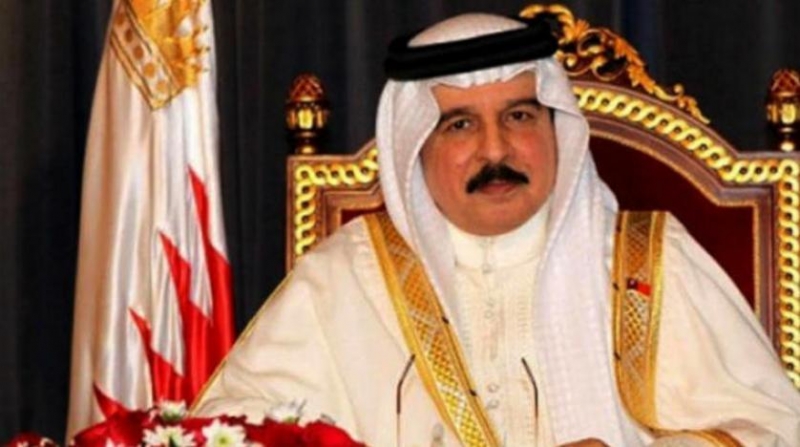After the UAE, Is Bahrain Next?
by Hugh Fitzgerald

Now that the United Arab Emirates has agreed to establish full diplomatic relations with Israel, and to engage in a full panoply of undertakings, involving technology, trade, tourism, agriculture, medicine, solar energy, and defense, among other fields, other Arab states are lining up.
Tiny Bahrain appears to be next. Its ruler, Hamad bin Isa Al Khalifa, is a Sunni, while at least 60% of his people are Shi’a. Many of the Shi’a are disaffected and restive, given the sectarian divide. In 2011, their protests against the government led to a crackdown that included the bulldozing of 27 Shiite mosques. An outward calm now prevails, though Iran, always making mischief, has tried to stir up that particular sectarian conflict in Bahrain. The Sunni family that rules Bahrain, the Al Khalifa, naturally gravitate toward Israel, the mortal enemy of their mortal enemy, Iran. And now we learn that Mossad chief Yossi Cohen has been on the phone many times recently with Bahrain’s Prime Minister — where would that information have come from, if not the Mossad itself? – and that the ruler of Bahrain has recently left the country for reasons unknown. Perhaps it’s merely to check up in a Western hospital, or perhaps, some suggest, he’s meeting – very far from public view — with Israeli counterparts.
The story is here.
Mossad chief Yossi Cohen spoke by phone in the past few days with Bahrain’s prime minister, Khalifa bin Salman Al Khalifa, Channel 12 news [in Israel] reported Saturday, amid speculation the Gulf state could imminently follow the United Arab Emirates in normalizing relations with Israel….
The network sighted unspecified “signs” that Bahrain was seeking to be next in line after the United Arab Emirates to establish diplomatic ties with the Jewish state and that a declaration to this effect was expected soon.
It also noted Bahrain’s official news agency reported Saturday that the Bahraini prime minister had left the country for a “private visit” abroad, speculating this could be linked….
The King of Bahrain, Hamad bin Isa Al Khalifa, spoke Saturday with Abu Dhabi Crown Prince Mohammed bin Zayed, the TV report also said, and told him of Bahrain’s support for the UAE’s normalizing of ties with Israel.
Besides Bahrain, Oman has also been touted as an Arab nation that could soon normalize ties with Israel. A Kan public broadcaster report Friday said Morocco was another likely candidate to reach an agreement with the Jewish state, while Intelligence Minister Eli Cohen told Channel 13 news on Saturday he believed Sudan would….
“Prime Minister Benjamin Netanyahu said on Thursday night that Israel had entered a “new era of Israeli relations with the Arab world,” and that other deals with Arab countries would follow. Jared Kushner, Trump’s son-in-law and senior adviser, said later Thursday that more Arab countries may soon announce normalized ties with Israel and Friday said relations between the Jewish state and Saudi Arabia were inevitable.
Netanyahu is haunted by one thing: the threat of Iran. Iranian bases in Syria, Iran-backed militias in Iraq, Iran’s proxy Hezbollah in Lebanon, and most of all, the threat from Iran itself, determined to wipe out the Jewish state, are always foremost in his mind. A shared alarm over Iran is what first pushed the Gulf Arabs toward Israel, and made Netanyahu put his own hopes of extending Israeli sovereignty over parts of the West Bank on the back burner, as he concentrates instead on his long-term project of creating a network of alliances with willing Arab and African states. In furtherance of this strategy he has traveled to Oman in 2018 at the invitation of the late Sultan Qaboos, reestablished diplomatic relations with Chad in 2019, met in Entebbe, Uganda with the leader of Sudan’s ruling council. He has tightened Israeli’s intelligence cooperation with Egypt in the Sinai, where regrouped members of Al Qaeda and the Islamic State threaten El-Sisi’s soldiers, and has continued to share intelligence on Iran with Saudi Arabia and the U.A.E. In this effort of slowly nurturing ties with Arab states, based initially on common security interests, Netanyahu has proved masterful. And his policy has borne fruit, most spectacularly in the decision by the U.A.E. to establish diplomatic relations, and full “normalization” of ties, with Israel.
Israel agreed to shelve annexation of parts of the West Bank as part of the deal, but it was unclear if the move had been put on hold permanently or temporarily. Netanyahu said his plan to apply Israeli sovereignty in the West Bank with full American coordination had not changed, and was still on the table, but that Trump had requested a temporary halt.
For now, it seems that the Administration will continue to withhold its approval of Israel extending its sovereignty in the West Bank, in the hope that Israel will, by suspending its annexation plans, be able to establish diplomatic and economic ties with Arab states, including – analysts suggest – Bahrain, Oman, Sudan, and Morocco. Some claim that Saudi Arabia will also soon be ready to formally recognize Israel and establish the same ties with the Jewish state – in technology, trade, tourism, medicine, agriculture, solar energy, and defense – as the UAE now will enjoy. Most Israelis are apparently satisfied with this strategy: to suspend Israel’s “extension of sovereignty,” which suspension does not change anything on the ground (the Jordan Valley is still controlled by Israel, half a million Israelis still live in the West Bank “settlements” with no expectation that they will ever be removed), and instead to create and deepen mutually beneficial ties with Arab states, of which there are, right now, five serious candidates –Bahrain, Oman, Sudan, Morocco, Saudi Arabia – to follow the trailblazing UAE in “normalizing” relations with the Jewish state. And of those five, tiny Bahrain now has pride of place.
First published in Jihad Watch.